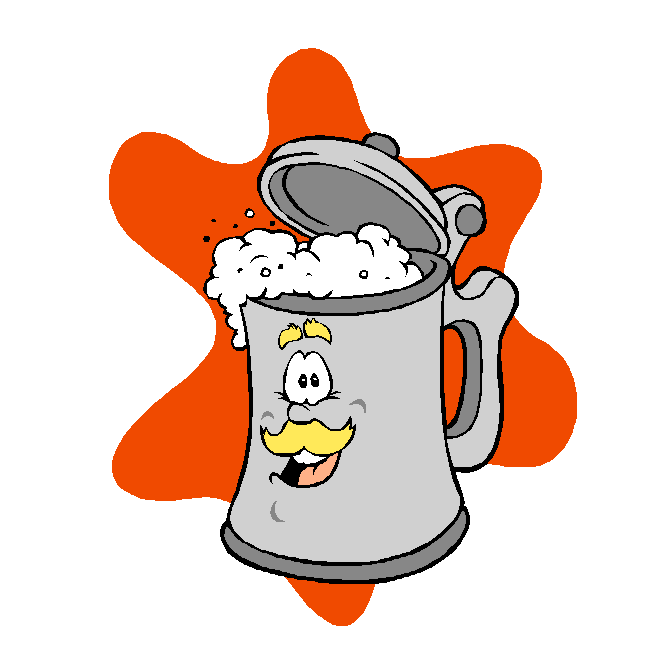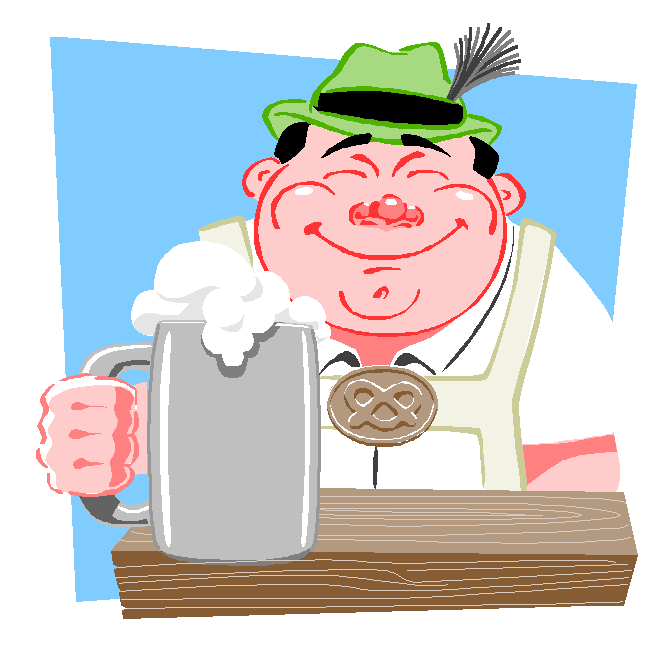
THE BUD IN THIS BEER IS A BIT OF MERIJUANA
By Greg Steinmetz
BERLIN, May 26, Wall Street Journal -- Asbjoern Gerlach brews his beer with water, malted barley, yeast, hops -- and marijuana. In Germany, that last ingredient raises eyebrows, but not for the reason you might think.
Since 1996, low-tetrahydrocannabinol hemp has been legal here and is now one of the country's fastest-growing cash crops. Mr. Gerlach, a 30-year-old brewer in Berlin's rough-and-tumble Kreuzberg neighborhood, adds low-THC Cannabis sativa, the flowering buds of the hemp plant, as a flavoring in his brew. He has been doing it on a small scale ever since hemp was legalized and now sells his beer to pubs as far away as London.
The police don't care; the hemp in his beer is very low in the active ingredient people smoke marijuana for. But Germany's image-conscious big brewers last month threatened to sue him. If Mr. Gerlach should lose in court, he could be fined $6,000 a bottle for violating the country's strict beer-purity law.
The Reinheitsgebot law, enacted in 1516, is one of the first consumer-protection measures in history. It requires that beer be made from malt, hops, yeast and water -- and nothing else. If you want to call it beer, you can't use flavorings. No chocolate, no cinnamon, no tequila and certainly no marijuana.
The law was relaxed in 1993 so foreign brewers such as Anheuser-Busch Cos. and Miller Brewing Co. can sell their "beer" in Germany, additives and all. But the old rules still apply to domestic brewers like young Mr. Gerlach, who looks like a snowboarder in his ragged sweater and baseball cap. "They are so proud of their stupid law," he complains.
Hemp in beer goes way back. In the Middle Ages, before Germany passed the beer-purity law, brewers commonly used it, among various other herbs. They liked the aromatic weed because it gave beer a fruity taste and acted as a preservative. People who drank it "liked the feeling," Mr. Gerlach says.
Mr. Gerlach revived the tradition several years ago while earning his brewing degree at Berlin's Technical University. Hemp was illegal. Breaking the law made his home brew even more popular at student parties.
"We kept it kind of secret," he says. He apprenticed at some big brewers, but when he graduated and couldn't find a job, he opened a shop for hobby brewers that sold craft beers, beermaking supplies and beer he brewed himself.
He had to keep it quiet until 1996 when Germany legalized hemp production following intense lobbying from what one government official called "hippies." Hemp advocates argued that German agriculture could benefit from a revival of the plant, which is easy to grow and which can be used to make all sorts of things, from rope to paper to clothing. Such products are now sold all over the country, in "hemp stores" and otherwise. In 1997, the second year for legal hemp in Germany, 7,163 acres were under cultivation.

The German government agreed to legalization after imposing some tough conditions. Germany allows only nonhallucinogenic varieties to be grown. To keep farmers honest, it requires them to register with agriculture officials and submit to surprise testing of THC levels in their hemp.
Mr. Gerlach figured even legal hemp would add character to beer and be a good sales gimmick. Immediately after the law passed, he brewed a batch for a hemp trade fair here. A few months later, with volunteer help from marketing students at the University of Potsdam, he began commercial production under the name Turn. The beer is sold in 80 pubs in Berlin and distributed in Leipzig, Stuttgart and Nuremberg. Some bottles are exported to Britain, Denmark and Spain.
The only high anybody gets from drinking Turn comes from alcohol. "You have to drink 3,000 liters to feel the hemp, but by then you are dead from the alcohol," Mr. Gerlach says. But the beer's label, a blue marijuana leaf, is suggestive, as is Mr. Gerlach's slogan, "Turn your mind."
Mr. Gerlach insists he isn't trying to fool anyone. The hemp leaf is what it is, he says. As for the slogan, "It's our way of saying turn your mind to the hemp plant for industrial uses."
Compared to Lowenbrau, Becks and countless other big German beers, Turn is nothing. Mr. Gerlach produces just 26,400 gallons a year, enough to produce only 140,800 bottles. But the German Beer Association, the industry's trade group, is determined to shut him down. Peter Stille, the group's executive director, says, "a connection between beer and drug abuse could damage Germany's reputation for quality beer."
To put a stop to Turn, the trade group invoked the beer-purity law. But Mr. Gerlach thought he had that covered. Nowhere on the label is Turn called beer. Rather, it is an "alcoholic drink with hemp buds."
But the brewing association points out that the label says the product is "brewed like a traditional beer." Also, Mr. Gerlach's enterprise is called The Beer Company.
As chemical analysis would show, Mr. Stille says, "It's beer. But it's forbidden beer." If the trade group failed to crack down on Turn, he says, it would have to make exceptions for other brews with unusual ingredients.
"One bad apple can spoil the whole basket. We don't allow exceptions," he says.
Other brewers have had problems with the beer law. Rudolf Wahl, 59, has been brewing for 36 years. Two years ago, he came out with a hemp beer called Cannabia and, like Mr. Gerlach innocently believed that he would not run afoul of the law as long as he called it a "hemp drink." But authorities cracked down. Mr. Wahl still makes Cannabia, but, taking advantage of a loophole in the beer law, he now mixes it with lemonade. He has had no legal trouble since then because, all agree, beer mixed with another drink is no longer beer. "I'm in favor of the law," Mr. Wahl says. "But in this case it's schizophrenic."
Peter Fritsch's headaches arise from the fact that he adds sugar to sweeten his beer, Neuzelle Klosterbrau. The recipe, he says, comes from monks who for centuries had been brewing in the town of Neuzelle, near the Polish border. When the brewery association came down on him, he fought back and hired experts to analyze his drink and declare it a beer. He is dumbfounded by the trade group's objections. "It's like saying that coffee becomes something else after you add sugar," he says. He is still in court.
Mr. Gerlach is confident that Turn will survive. He has hired a lawyer and has had help from Berlin's environmentalist Green Party, which won him some time by arguing that he is creating jobs. Mr. Gerlach only has four employees at his Kreuzberg location, but every job counts in a neighborhood with a 30% unemployment rate.

Mr. Gerlach also has a fallback plan. He has been scouting out locations in Poland and the Czech Republic with the intention of shipping his beer back to Germany as an import exempt from the purity law. In the meantime, he has enough beer to survive a few more months of legal wrangling. "We have 50,000 bottles in storage," he says.